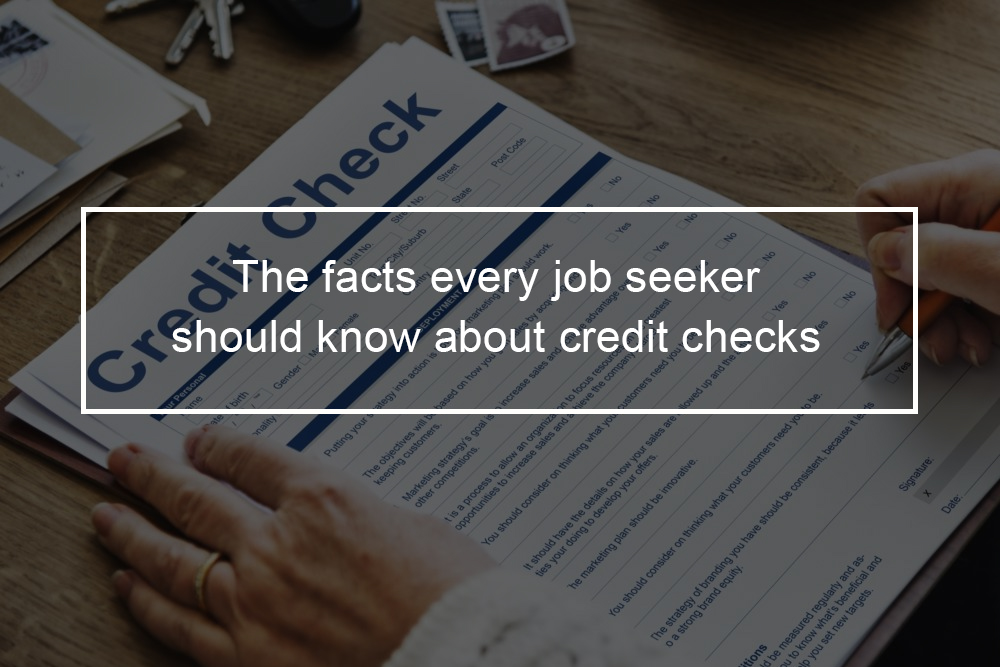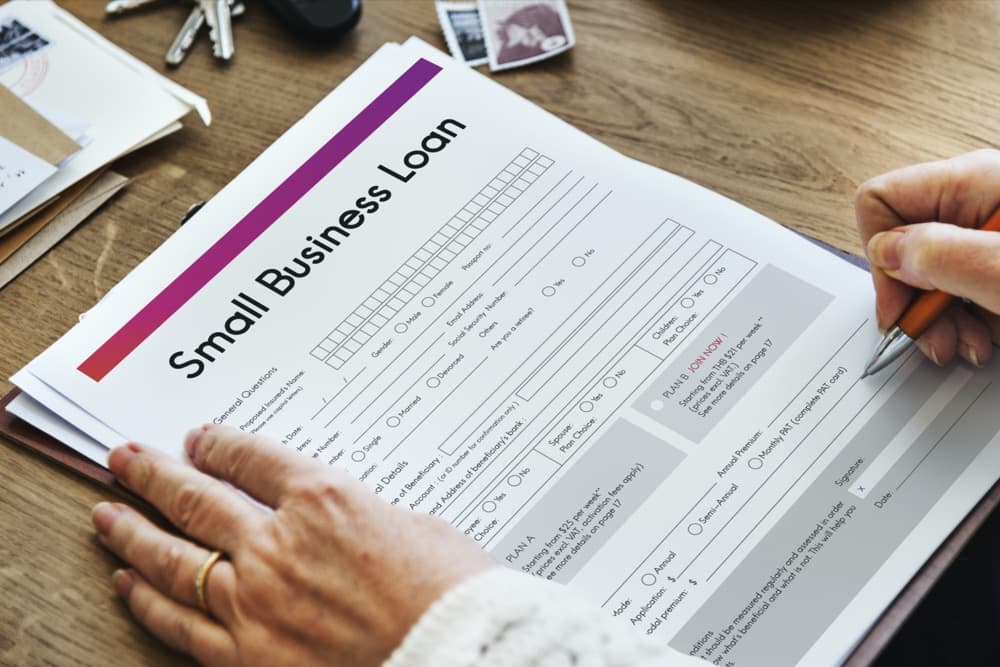
Any bankruptcies and missed payments can be a sign of being irresponsible elsewhere, and effectively remove you from the competition. This can be a shocking and disturbing case to find yourself in, especially if you qualify for the position. Keep reading to see how you can be denied a job because of poor credit and tips on how to prepare yourself and prevent such a scenario from happening.
How does an employer credit check affect workers?
Employer credit checks have a great impact on applicants. Following a report from Think Tank Demos, one in ten employees with credit card debt say they have not gotten a job because of their credit history. About one in seven of those people with poor credit histories reported their credit report because they were not hired.
Sadly, this can result in a negative spiral. If you can not get a better job because of your credit report, you might struggle to pay off debt and increase your credit score. This is one of the main reasons you should know what is in and how to check your credit report. Research shows that most people who have poor credit do so because of household unemployment and medical debt.
Why does a company check credit, and how big is the risk?
It might not seem fair to you that a company will judge your ability to do the job based on your credit score. It is a factor that most employers might consider; however, it is not a standard hiring practice.
Note that this is more likely to be an issue when applying for jobs that need money handling. The only special case is jobs in which the staff handles money, has credit authority, or makes decisions about the disbursement funds. The most common industries that carry out employer credit checks are government, finance, and other public services jobs. Even though in certain states, other industries will check credit too.
Generally, there are many reasons why an employer might want to know if your credit is good:
- Lots of late payments: This can indicate a potential employer that you are not very well organized. The worst scenario is that you might seem like the kind of person that is not bothered by the fact that you do not live up to things you have agreed upon. Either way, the employer sees it, you do not look like the right person for the job when they see this on your credit report.
- Too much debt: When a person has racked up many debts that appear unsustainable, it might raise the alarm when it comes to potential theft. Individuals in desperate situations tend to make bad decisions. And paying off debt can cause somebody to steal or skim profits to be able to pay back. Even though you would never actually do this, a potential employer will want to take a chance.
- Mishandling of money: Finally, if a potential employer sees terrible decisions regarding taking on credit, they might wonder how good you are at managing financial decisions for the organization. If you can not make good financial decisions for yourself, it does not seem like you would be able to make great decisions for the company.
If an organization requires you to have a security clearance to work there, your poor credit will undoubtedly hinder your chances. You will need to be able to repair your credit before applying to a company that needs it.
What is on a credit check?
A company might use one of the three major credit bureaus for an employer credit check- TransUnion, Equifax, or Experian. They might also hire an outside third-party company to carry out this credit check.
The employer credit check will show any previous legal names, your current legal name, current and previous address, and your Social Security Number. It will not show your birthday, even though that will possibly appear in the job application form.
The credit check will also show any lines of credit you have, available credit, and current balance. If you have medical bills sent to collections, they will see it too. If you have a zero balance on your credit cards, they will see that also.
However, an employer credit check does not show your spouse’s information. If your spouse has debt, their name will not be shown on your credit report unless you are an authorized user on the account or joint debt. For instance, if your spouse has a medical bill that is gone to the collections, it will not be on your credit report.
Is consent required when conducting a credit check?
Most organizations use third-party services to carry out these credit checks. The companies can pull a prospective employee’s credit report; however, it does not mean they are acting within the legal bounds. Rod Griffin, the director of consumer awareness and education for credit bureau Experian, said they would need to have a permissible aim and should work with their compliance team to make sure they comply with federal and state laws when it comes to using credit reports as part of the employment process.
What are your rights?
As mentioned earlier, a company can not check your credit without you knowing about it. Note that when it comes to your credit, you have rights despite how bad your score might be.
The Fair Credit Reporting Law is an act that needs an organization to make a transparent notice that they mean to check your credit. Moreover, they can only check it with your express written permission to do so.
If you deny them permission, you are not likely to get the job, so your possibilities are better at being hired when you permit them even with bad credit. If they do deny you the job based at least partly on your credit rating, then they have to inform you that this factored into the decision making process. They will even have to give a copy of their report.
What to do if your credit checks rights have been violated?
It is not common for an employer to break the law when reviewing an individual’s credit report. Some major employers have been found in current years for violating federal and state laws.
If you think the potential employer has violated the Fair Credit Reporting Act during the hiring process, you can report them to your local or state government if they have specific laws about employer credit checks. If not, you can report them to the Consumer Financial Protection Bureau and the Federal Trade Commission.
Hiring a lawyer can be costly; however, if you know multiple people who have been violated by the same organization, you can consider hiring a lawyer together.
How can you protect yourself?
Before you apply for a job where you think they are likely to check your credit, obtain a copy of your report from AnnualCreditReport.com, which is free. The report from the three major credit bureaus, TransUnion, Equifax, and Experian.
It is vital to do this before you apply for a job since you might discover a mistake, or something more sinister such as identity theft, on your credit report. Following the Consumer Financial Protection Bureau, one out of five people will have an error on their credit report. For instance, it can be a bankruptcy from eight years ago that should no longer be on your credit file.
Disaster planning is adequate. When you anticipate the very worst that can happen and prepare various likely cases, you are more well-placed to either present the issue upfront or offer a reasonable explanation. Most credit challenges have a legitimate origin, such as divorce or medical problems. Many of the organizations that use credit reports are inclined to overlook the challenge as far as it does not look like a trend or use a credit report in deciding to hire a prospective employee.
If you know, there is a threat of an issue (for instance, if you are interviewing for a job with a financial institution or a bank that you know will check your credit score, it is better to be dynamic with Human Resource Manager during your interviews to check if or not the effect of having a poor credit score is terminal.
Will an employer credit check further hurt your score?
Even people with good credit sometimes do not feel okay about permitting to check their credit reports. People think that too many inquiries can hurt your taking.
The reality is that there are different kinds of inquiries, and not all of them impact your credit score negatively. When an organization uses your credit rating for employment reasons, it is known as a soft inquiry and does not influence your credit score.
These inquiries do not show up on your credit report, so employers can not see if any other organization searched for your credit score for hiring purposes.
Your credit, whether good or bad, can impact you getting hired. It can damage job prospects and even relationships when it is bad. Nonetheless, you can increase your credit score by using a credit builder card or making timely payments. Do not just do nothing till it is too late to repair our credit.











